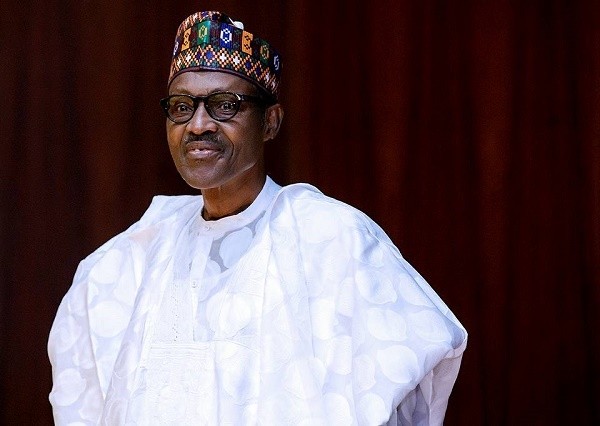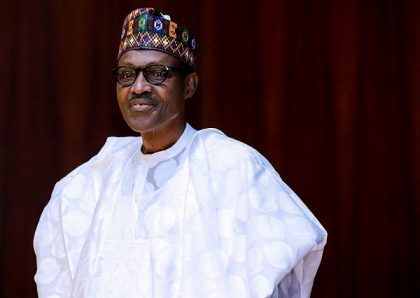Economy
Economy: Nigeria’s future still bleak

By UCHE CHRIS
With the 2019 presidential elections won and lost, attention has shifted to the prospect and outlook of political and economic development under the President Muhammadu Buhari in the next four years. The capital market which had been on a mild resurgence lost in three consecutive sessions following his victory. Experts see this trend as indicative of what to expect in the days ahead.
Late 2018 two international agencies, HSBC banking corporation and the London Economist Intelligent Unit published separate reports on the Nigerian economy and the election, which warned of the declined under the present government and why it would worsen if President Buhari returned. In fact they predicated a victory for the main opposition candidate, Atiku Abubakar on account of worsening poverty.
In the report, put together by its Global Research Unit, entitled, “Nigeria, Papering over the Cracks,” HSBC said Nigeria’s current economic struggles look set to continue if Buhari won a second term in office.According to the financial institution, the president’s “approval ratings sit near all-time lows,” a development, it said, “largely reflects the impact of Nigeria’s painful recession in 2016-17 and the sustained economic hardship that has accompanied his presidency, including rapidly rising joblessness, and poverty.
“A second term for Mr Buhari raises the risk of limited economic progress and further fiscal deterioration, prolonging the stagnation of his first term, particularly if there is no move towards completing reform of the exchange rate system or fiscal adjustments that diversify government revenues away from oil.”
The multinational banking group, which is Europe’s largest by total assets, noted that while higher oil prices have brightened Nigeria’s macro outlook, boosting export earnings, improving the supply of foreign exchange, and supporting naira stability, the Buhari administration was yet to address the economy’s structural shortcomings.
It said, “Economic growth remains sluggish and reliant on the rebound in oil output while the non-oil economy, which accounts for about 90 per cent of GDP, continues to languish with many service sectors still mired in contraction.
“Joblessness continues to rise, up almost three-fold in three years to 19 per cent in Q3 2017, pushing the number in poverty to 87 million. “Meanwhile, current account improvements may have pivoted on higher oil prices, but they also derive from on-going import restrictions and limited FX access for many sectors of the economy.”
As late as February 2, 2019, just two weeks before the proposed date of then polls, Economist predicated a Buhari loss based on the performance of the economy during his tenure. Surprisingly he won. But his victory does not obviate and mitigate the critical issues raised by them on the economy.
President Buhari will be coming into office for the second term with a record of the past four years to signpost where the economy may be headed in the next four years unless there is dramatic change of economic course. Ironically, President Buhari did not win the election on the basis on his economic performance and competence. Under him the economy performed worse than any other in the past two decade, yet he won in spite of that.
But the outcome of the election also points to a definitive statement by Nigerians to express their worsening economic conditions and the need for the president to address them. In 2015, the president won massively indicating a rejection of his opponent; this time he struggled in most of the areas he proved invincible.
Dr. Godwin Owoh, a financial consultant, agrees with the agencies. “It is superstitious to hope that the economy will improve because there are no fundamental assumptions to support it. I am a scientist and we deal with facts; and I tell you the outlook in spite of the victory is glim. Nigerians should brace up for hard times; four years are not enough to change the trajectory of the economy given where we are coming from and the prevailing international conditions,” he said.
Also Mr Teslim Shitta-Bey, an economic analyst with Proshare consult, believes the economy will not improve remarkably under this government given its economic philosophy of state control, managed exchange rate, high interest rates to curb inflation and ballooning population.
“There will be no growth until half year; we still have no budget and it may not be passed before the end of this administration. Government is living on debt and this will get worse with the private sector crowded out in the system. Investors who had left would not return immediately; but the real challenge is the rising population and unless the economy grows faster than three percent, which I don’t see, then the country is in trouble”, he said.
He stressed that the minimum wage issue which government accepted to win election is going to be its main undoing financially because unless it grows its revenue, there will be more borrowing to pay salaries.Also not paying or dragging is passage as it appears would lead to industrial unrest and economic instability.
Furthermore, he said Government will tighten the tax noose on Nigerians and businesses and this would affect the economy adversely.
Buhari did not pretend to be strong on the economy although he made the economy one of the three planks on his manifesto. But Nigerians did not expect the disaster that hit them economically as a result of his economic policies. Although government blamed the previous government and crash in oil price for the troubles in the economy, experts believe his economic policies were largely responsible.
Buhari came to power in a challenging time when oil price had fallen from over $100 per to about $60 and the economy reeled. But the government exacerbated the situation by de-marketing the country with the president making un-flattery comments about the country, which scared away foreign investors.
Then his command approach to managing the economy. Before Buhari, Nigeria had 16 years of economic reforms and liberalisation which attracted global recognition and interest by foreign investors. With such statements and sudden change in policy direction, foreign investors took flight to safety putting unprecedented pressure on the naira, which declined from N198 to over N400 per dollar.
In 2016 the economy went into recession which lasted for 15 months and left the GDP in negative growth of -.18 percent. By 2018 Nigeria was classified as the poverty capital of the world in spite exiting recession, with the GDP still at less than two percent.
More than 80 million people, approximately 40% of the population, are living below a poverty line of $2 per day. Nigeria has reportedly overtaken India as the country with the largest number of people living in extreme poverty!Extreme poverty is heavily concentrated in rural Nigeria and among women. Intensity of Poverty ranges from 38% in SW and SE to 44% in NE and 45% in North West, the president’s zone.
Another area that suffered under this government in the past four is unemployment.
Although the president promised to tackle unemployment by creating jobs, however, his policies led to the loss of over 11 million jobs and took the number from eight percent to 21.9 percent according to the National Bureau of Statistics.
According to experts, the two major indices of deterioration in the welfare status of Nigerians in recent times are the increasing rates of youth unemployment and high level of poverty. Africa’s largest economy, with GDP of over US$500 billion, remains ‘one of the poorest and most unequal countries’ in the world.
Estimates of the country’s total number of unemployed were as high as 16 million people in 2017, rising from 7 million 2014. Nearly 34 million people or 40% of the country’s labour force population were classified as underemployed and unemployed.
A major failure of tis government is still its inability to fix the power challenge in the country. Before his appointment as minister of power, former governor of Lagos state, Mr.BbatundeFashola taunted the previous government that it would not take six months to solve the problem. After four years he has recanted and the problem unresolved. And without power, experts say, economic growth will be a far cry.
Debt is another sore point in the government economic management. The government has borrowed in four years more the debt profile after debt relief in 2004. At inception, the debt level was N11 trillion; today it has risen to N23 trillion, with debt service at 68 percent of the budget, which had forced the IMF, CBN and World Bank to warn Nigeria of impending debt over-hang.
Although the forex market has been stabilised over the past two years, the high exchange rate of the naira at N360 to a dollar has seen the life style of Nigerians plummet as inflation and high cost of living push more and more to the brink. Inflation rose to as high as 18 percent in 2017 before moderating to the present 11.4 percent.
All these issues come to a head in the capital which has seen All Share Index plunge from its lofty height of over 60 thousand to about 32 thousand and market capitalisation from over N28 trillion to N13 trillion.
Nigeria remains an noncompetitive economy as demonstrated by the recent World Economic Forum [WEF], Global Competitiveness Index which positions Nigeria as 115th of 140 Countries. This is three places down relative to the ranking of 112/135 in 2017.
As a result of Nigeria’s inhospitable business environment, the economy has failed to attract FDI into the non-oil sector. Sadly, FDI has continued to decline since 2011 from US$8.9 billion to US$4.7 in 2014 and US$3.1 in 2015. It fell to a low of 0.88% of GDP between 2015 and 2017, when Nigeria’s economy suffered significant contraction.
This picture of a failed economic policy in spite of the Economic Recovery and Growth Plan, initiated by government 2017 suggest clearly that the economy is in need of a spite and redirection. Buhari’s second term must focus on the economy by introducing expected and desirable reforms to open it up more for more participation by Nigerians. and foreign investike.
Obviously, the government has made progress in agriculture through the CBN initiated Anchore Programme on rice and other grains. Such should be sustained its focus on the north alone should be reviewed. But reform and openness is what the economy needs and whether Buhari is end well or not may depend on what he does with the economy going forward.
Also foreign reserves have been moderate but the determined defence of the naira by the CBN has seen it eroded. Also people wonder the purpose of high reserves wen the government Is borrowing massively.
Going forward, there is little to cheer economically by his victory as all the prognosis suggests otherwise and a bumpy time ahead.



